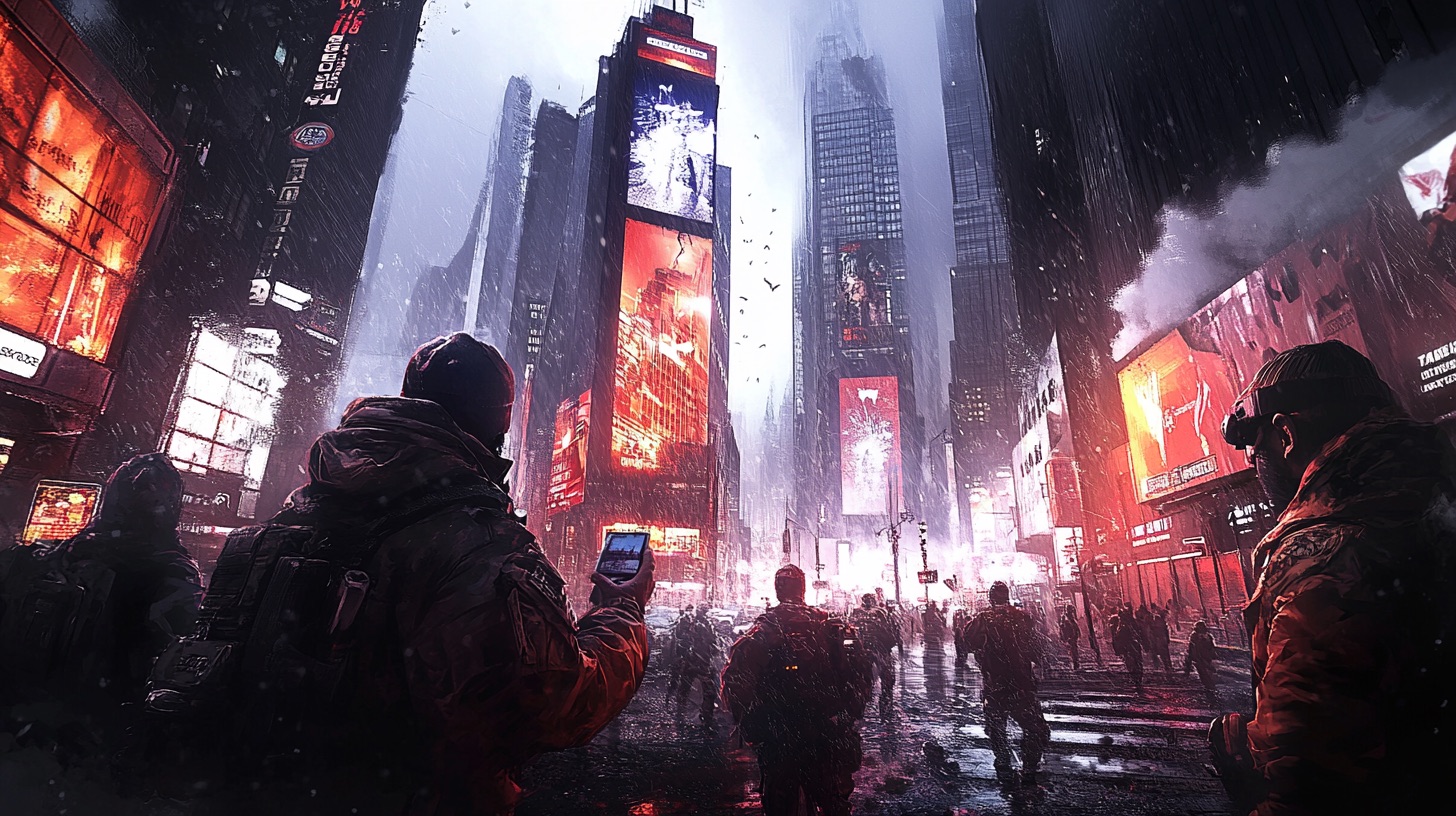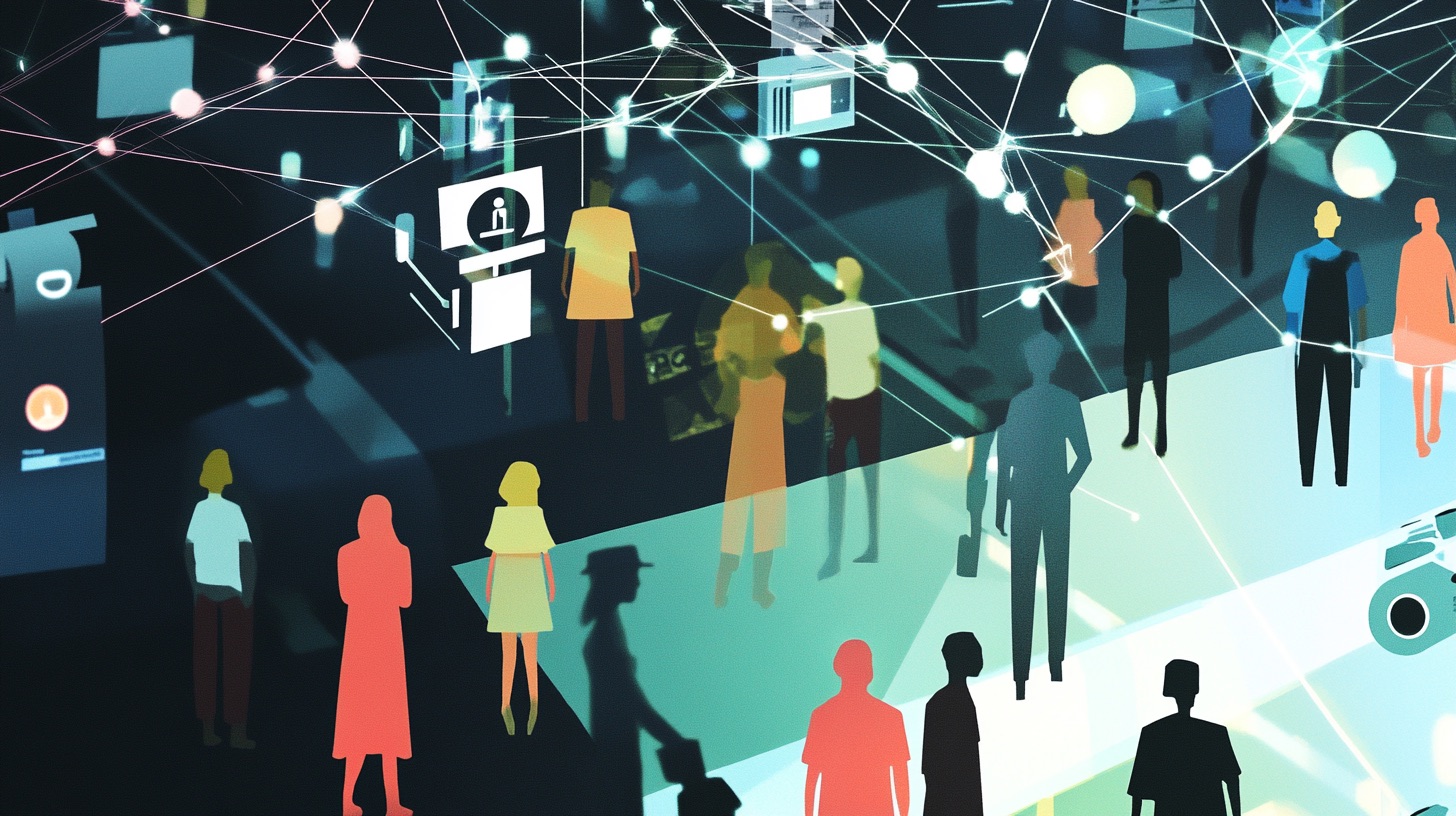The current socio-political landscape and technological advancements draw a striking parallel to the cyberpunk genre, creating a reality that increasingly resembles the dystopian futures depicted in cyberpunk fiction.
Political Tensions and Corporate Power
The return of Trump and the growing influence of Christian nationalists in American politics mirror the authoritarian regimes often portrayed in cyberpunk narratives. This shift towards a more theocratic government, with groups aiming to reshape laws based on religious values, echoes the oppressive power structures commonly found in cyberpunk worlds. The blurring of lines between government and religious institutions resembles the corporate-controlled societies in many cyberpunk stories, where traditional democratic processes are subverted by powerful entities.
Technological Advancements and AI
The rapid rise of AI, exemplified by China’s DeepSeek, parallels the omnipresent artificial intelligence systems in cyberpunk fiction. DeepSeek’s ability to match or surpass Western AI models at a fraction of the cost reflects the genre’s theme of technological innovation outpacing societal readiness. This breakthrough, causing market disruptions and intensifying US-China tech rivalries, mirrors the global power struggles often depicted in cyberpunk narratives.
Ubiquitous Technology and Surveillance
The increasing availability of cheap technology like smartphones, drones, and bots aligns with the cyberpunk vision of a world saturated with high-tech gadgets. This proliferation of technology, while offering convenience, also raises concerns about privacy and surveillance – a central theme in cyberpunk stories. The potential for an “Internet of Things” by 2025, where everyday objects become information nodes, further blurs the line between the physical and digital worlds, a hallmark of cyberpunk settings.
Climate Change and Environmental Degradation
The escalating frequency of climate-related disasters echoes the environmental crises often portrayed in cyberpunk fiction. The disproportionate impact of these events on marginalized communities reflects the social inequality prevalent in cyberpunk narratives. The potential for climate-induced mass migrations by 2050 aligns with the dystopian futures often depicted in the genre.
Wealth Disparity and Corporate Dominance
The growing economic inequality, exacerbated by technological advancements and climate change, mirrors the stark class divides common in cyberpunk worlds. The increasing power of tech giants and their influence over daily life parallels the corporate-dominated societies often portrayed in the genre.
Conclusion
The convergence of these factors – political authoritarianism, rapid technological advancement, environmental crisis, and widening social divides – creates a reality that increasingly resembles the dystopian futures envisioned in cyberpunk fiction. As we navigate this complex landscape, the genre’s themes of resistance, identity, and the human spirit in the face of overwhelming systems become increasingly relevant to our lived experience.


